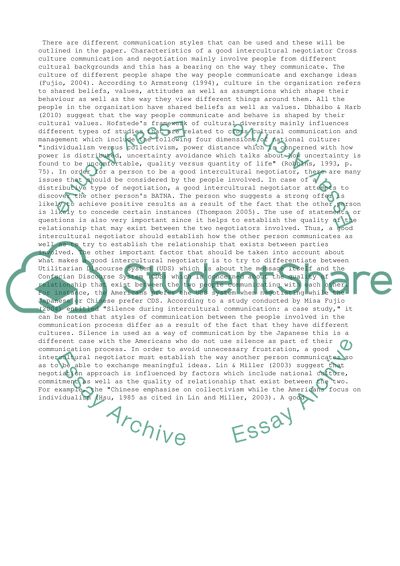A self assessment on intercultural negotiating skills Essay. Retrieved from https://studentshare.org/business/1492436-a-self-assessment-on-intercultural-negotiating
A Self Assessment on Intercultural Negotiating Skills Essay. https://studentshare.org/business/1492436-a-self-assessment-on-intercultural-negotiating.


